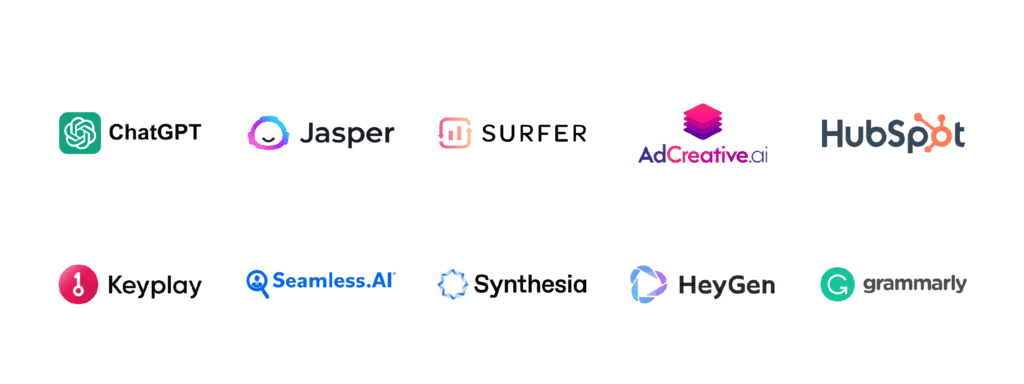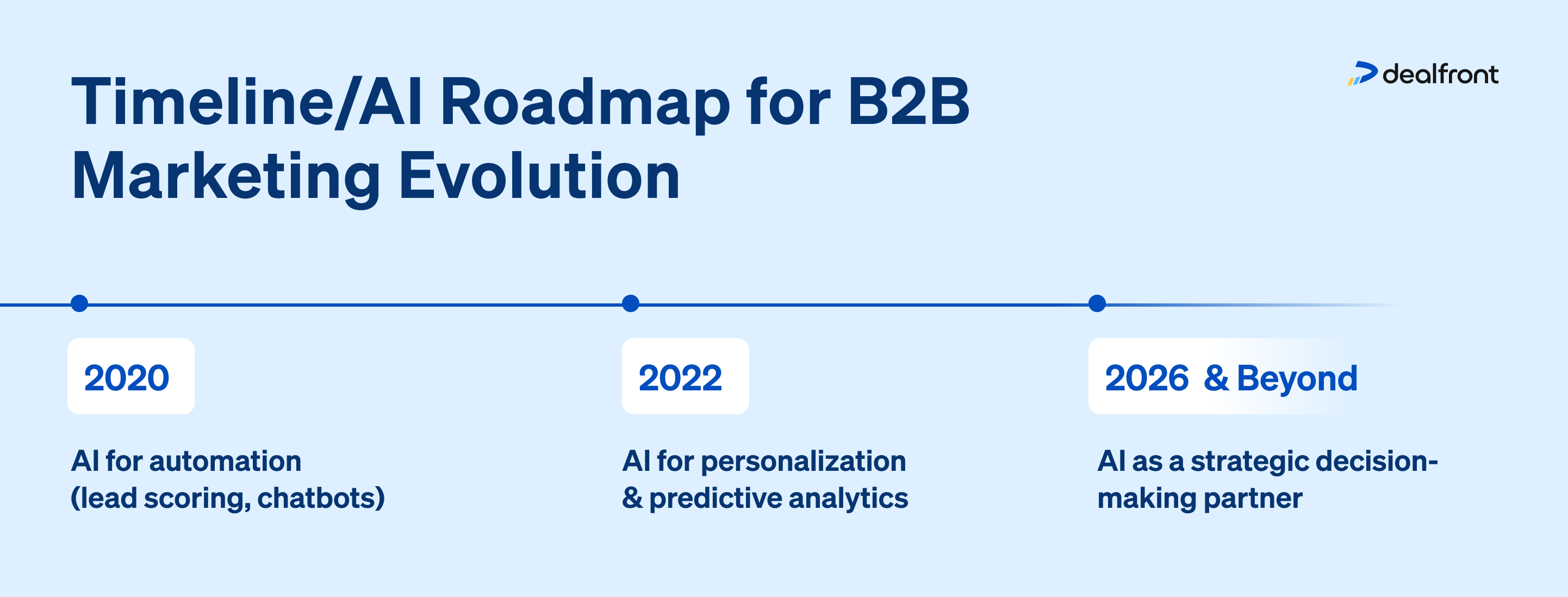The ultimate guide to Growth Systems For B2B
Reinvent Your Company: Exactly How AI Automation Is Changing B2B Workflow
AI automation is improving B2B operations in substantial ways. Companies are embracing this modern technology to streamline process and boost efficiency. As jobs become automated, businesses can focus on critical development instead than mundane procedures. The ramifications of these adjustments are extensive, affecting everything from customer interactions to supply chain management. Recognizing this makeover is crucial, as the future of business hinges on the reliable combination of AI into everyday operations. What lies in advance in this advancing landscape?
Comprehending AI Automation in B2B Context
As services increasingly seek efficiency, recognizing AI automation within the B2B context comes to be vital. AI automation describes the application of expert system innovations to simplify and improve service procedures. In B2B environments, this can show up in numerous types, such as automating information entrance, optimizing supply chain logistics, or improving stock monitoring. Organizations leveraging AI automation can lower functional prices, minimize human error, and rise productivity. Additionally, AI devices can analyze large quantities of data to give actionable understandings, making it possible for notified decision-making. Business Process Automation. The integration of AI right into B2B procedures not just changes conventional process but also promotes dexterity and scalability, permitting companies to adjust to market modifications quickly and properly. Embracing this technology is vital for staying competitive in today's electronic landscape
Enhancing Customer Experience With AI
Exactly how can AI change customer interactions in the B2B market? AI enhances consumer experience by giving personalized, timely, and effective service. Online assistants and smart chatbots can handle queries 24/7, making certain clients obtain prompt responses. AI Automation For B2B. Predictive analytics enable services to anticipate customer demands, customizing offerings as necessary. AI-driven platforms can examine customer data, enabling targeted marketing methods and improved involvement. Furthermore, view analysis devices assess customer feedback, aiding organizations adjust their services. By automating routine jobs, AI releases up human sources to concentrate on high-value interactions, cultivating stronger relationships. The integration of AI not just enhances interaction however likewise builds count on and commitment, eventually boosting the general customer experience in the competitive B2B landscape

Enhancing Supply Chain Management With AI
AI plays a crucial role in optimizing supply chain monitoring with anticipating analytics and automated stock control. By leveraging anticipating analytics, businesses can prepare for demand fluctuations and change their procedures appropriately. Automated stock systems even more enhance effectiveness by guaranteeing stock levels are preserved, lowering waste and improving general productivity.
Anticipating Analytics Benefits
While several organizations deal with challenges in handling complicated supply chains, predictive analytics supplies a transformative remedy by leveraging vast quantities of information to anticipate patterns and enhance operations. By assessing historical information together with real-time inputs, anticipating analytics allows firms to determine patterns and anticipate future needs. This insight enables more informed decision-making, boosting effectiveness and decreasing expenses. On top of that, businesses can proactively deal with potential interruptions by predicting supply chain bottlenecks and adjusting strategies accordingly. The combination of predictive analytics not only improves inventory monitoring yet also fosters more powerful connections with providers and consumers via timely feedbacks to market changes. Ultimately, the adoption of predictive analytics equips organizations to remain affordable in a progressively dynamic organization atmosphere.
Automated Stock Control
As services progressively count on predictive analytics to optimize supply chain procedures, automated supply control emerges as an effective ally in this effort. By leveraging AI-driven innovations, business can boost precision in inventory tracking, decrease stockouts, and reduce excess stock. Automated systems assess real-time information, enabling organizations to anticipate demand changes and adjust supply levels accordingly. This not only streamlines order satisfaction but likewise improves money circulation management by reducing holding expenses. In addition, AI can identify patterns in purchasing behavior, allowing even more enlightened decision-making concerning supplier connections and purchase approaches. Ultimately, automated inventory control not only improves operational performance yet likewise enhances client fulfillment by making sure product schedule, solidifying its function as a crucial element in modern supply chain administration.
Data-Driven Decision Making Powered by AI
In today's competitive landscape, companies significantly rely upon data-driven decision-making to enhance operational performance and critical planning. Artificial intelligence plays a critical duty in this change by evaluating huge quantities of data swiftly and precisely. AI algorithms recognize patterns, trends, and anomalies that human analysts might neglect, enabling companies to make informed choices based on real-time understandings. This capacity enables business to anticipate market shifts, enhance resource allotment, and customize their offerings to consumer needs. Furthermore, AI-driven analytics facilitate threat evaluation and administration, making certain that companies can browse uncertainties successfully. By leveraging these advanced devices, companies not just enhance their decision-making procedures but additionally gain a competitive benefit in their respective markets, fostering growth and development.
Automating Recurring Jobs to Increase Productivity

Integrating AI With Existing Service Procedures
Many companies deal with challenges when integrating AI with existing organization procedures. These challenges typically stem from an absence of recognizing relating to just how AI can match existing operations. Successful combination needs a comprehensive analysis of existing operations to recognize areas where AI can include worth. Organizations needs to also assure that their teams are equipped with the needed abilities to utilize AI tools successfully. Additionally, smooth assimilation depends upon the compatibility of AI technologies with legacy systems. Companies typically locate it helpful to embrace a phased strategy, piloting AI applications in details departments before a broader rollout. This approach permits adjustments based upon first feedback, assuring smoother shifts and making the most of the prospective advantages of AI automation in improving productivity and effectiveness.
Future Fads in AI Automation for B2B Companies
As B2B firms seek to the future, improved information analytics is established to play a crucial role in driving decision-making processes. Intelligent process automation will certainly additionally become a crucial fad, improving and improving operations effectiveness. These advancements assure to reshape how businesses operate, inevitably causing even more receptive and agile organizations.
Enhanced Information Analytics
While companies increasingly rely upon data-driven choices, the duty of AI in enhancing information analytics is becoming much more necessary in B2B procedures. AI technologies facilitate the collection and evaluation of substantial datasets, enabling firms to uncover valuable understandings that drive strategic planning. Predictive analytics powered by AI enables organizations to forecast market fads and customer habits with better accuracy. Furthermore, artificial intelligence algorithms enhance information interpretation, identifying patterns that human experts might overlook. This results in even more educated decision-making and enhanced resource allotment - B2B Growth Consulting. As B2B firms continue to accept AI-driven analytics, they can anticipate better functional performance, enhanced client experiences, and an affordable edge in the marketplace. The future of information analytics in B2B depends continue reading this upon integrating innovative AI capabilities
Smart Refine Automation
Intelligent Refine Automation (IPA) is poised to reinvent B2B procedures by flawlessly integrating AI technologies with conventional service procedures. This cutting-edge approach integrates robotic process automation (RPA) with innovative AI capabilities, enabling companies to enhance effectiveness and precision. Companies can automate repeated jobs, such as information entry and invoice handling, allowing workers to concentrate on critical initiatives. IPA also leverages artificial intelligence and all-natural language processing, improving decision-making through real-time information analysis. As services significantly take on IPA, they can expect substantial price reductions and boosted customer experiences. Future fads suggest an expanding dependence on IPA for scalability and versatility, positioning organizations to grow in an ever-evolving market. Welcoming IPA will certainly be necessary for preserving competitiveness in the digital age.
Frequently Asked Questions
What Industries Benefit Many From AI Automation in B2B Workflow?
Production, logistics, finance, and health care sectors benefit most from AI automation in B2B operations. These markets leverage automation to boost efficiency, lower prices, streamline procedures, and enhance decision-making through anticipating analytics and data-driven insights.
Exactly How Can Small Companies Execute AI Automation Effectively?
Small companies can implement AI automation successfully by determining repeated jobs, picking ideal devices, incorporating services gradually, training team, and continuously examining performance to enhance procedures, maximizing and guaranteeing a smooth transition effectiveness. Growth Systems For B2B.
What Are the Costs Related To AI Automation Execution?
The expenses related to AI automation application normally consist of software procurement, facilities upgrades, educating team, continuous upkeep, and prospective consultation charges. These expenses can differ considerably based on the range and intricacy of the automation services chosen.
Just how Do I Measure ROI From AI Automation Initiatives?
To gauge ROI from AI automation initiatives, one should evaluate cost financial savings, productivity renovations, and profits growth against implementation expenses. Tracking crucial efficiency indications over time offers useful insights into effectiveness and general roi.
What Abilities Are Required to Take Care Of AI Automation Projects?
Effective administration of AI automation tasks calls for skills in task monitoring, information evaluation, programs, and comprehending AI technologies. In addition, solid interaction, analytical capabilities, and versatility are essential for navigating the intricacies of such efforts.
As businesses significantly seek performance, comprehending AI automation within the B2B context becomes vital. The combination of AI right into B2B procedures not only transforms standard operations yet also promotes dexterity and scalability, enabling services to adjust to market modifications quickly and effectively. While organizations progressively rely on data-driven decisions, the function of AI in enhancing data analytics is coming to be a lot more essential in B2B procedures. Intelligent Refine Automation (IPA) is positioned to revolutionize B2B procedures by seamlessly incorporating AI technologies with typical company processes. Reliable administration of AI automation tasks requires abilities in project monitoring, data evaluation, programming, and recognizing AI modern technologies.